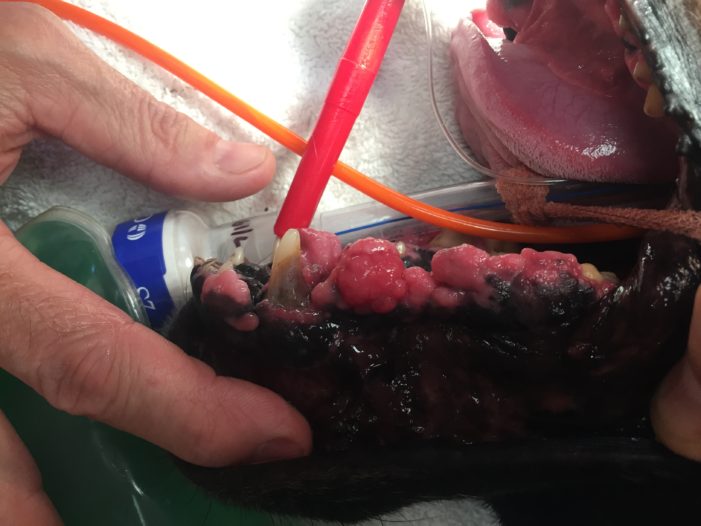Gingival hyperplasia refers to a medical condition that can occur in dogs and cats characterized by firm, nonpainful swellings associated with the gingiva. Basically gum (gingival) tissue becomes inflamed and enlarged. Gingival hyperplasia is sometimes referred to as fibromatous periodontal hyperplasia. Gingival hyperplasia is more common in large and giant breed dogs and there is a familial…
Instructions for Feeding a Bland Diet to a Dog
If your dog or cat has an episode of vomiting or diarrhea, we sometimes suggest a bland diet. Below are our instructions we use for minor problems. If your dog is lethargic, weak, or the vomiting or diarrhea is consistent, please call us at (740) 587-1129. Instructions for Feeding a Bland Diet to a Dog…
What Percentage of Lost Pets get Returned Home?
We have had a few lost pets come in that had microchips and a few that didn’t. In fact, we shared a story about a cat last week with you that came in with a chip and was home within the hour! I wanted to share some information with you about how many pets that…
Should You Microchip Your Dog or Cat?
Last month we had a wonderful Granville resident bring in a cat that they found wandering through their yard. The cat looked scared but was very sweet. They asked us to check it and see if we recognized it. We scanned the cat for a microchip and the cat had one! To scan a cat…
When Is the Best Time to Spay Your Dog?
We recommend that dogs be spayed before their first heat, which is around 5 to 6 months of age. Dogs spayed after their first heat have a higher incidence of breast cancer.

